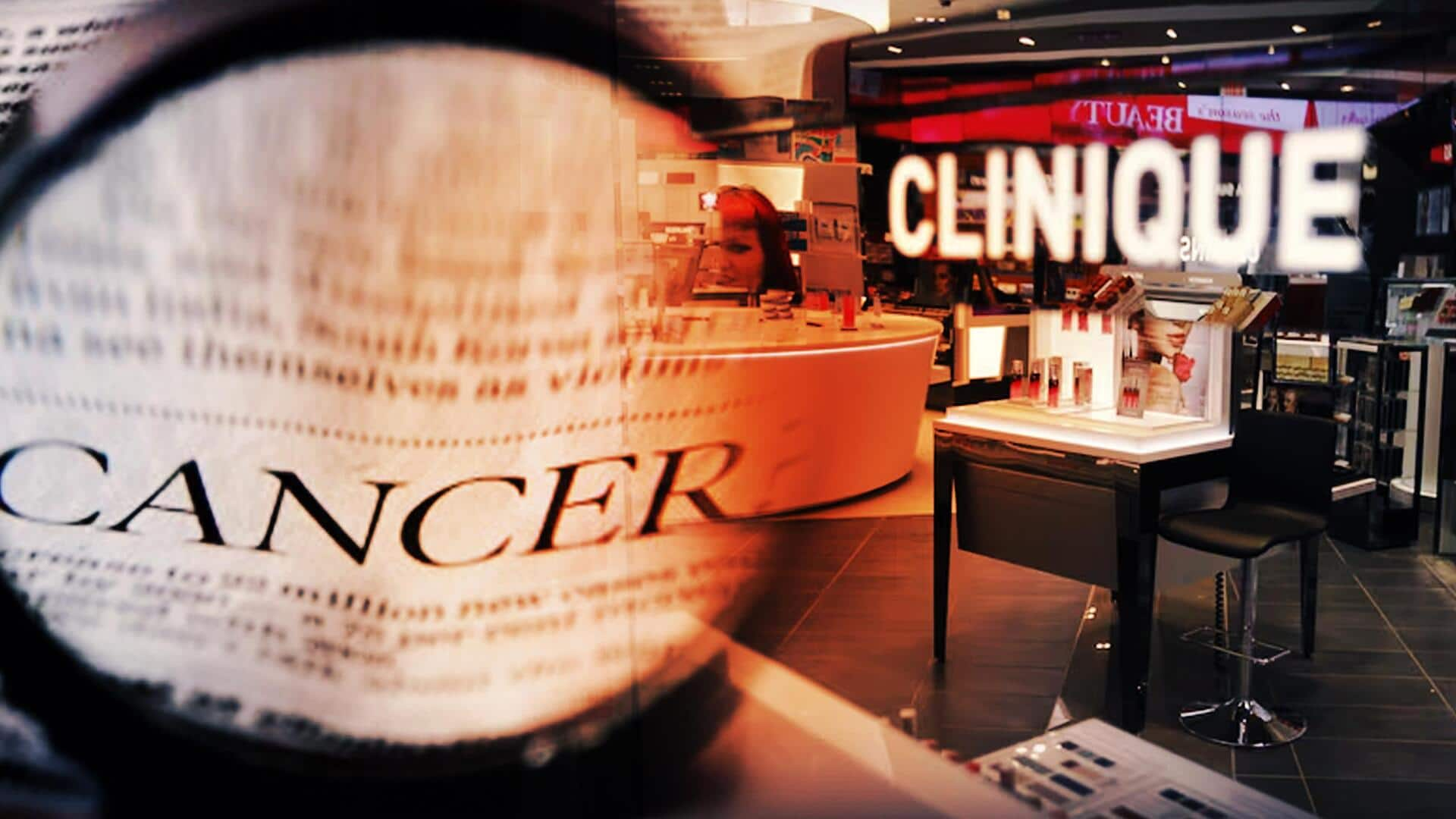
Clinique, Proactiv, Clearasil acne products found to contain cancer-causing chemical
What's the story
Independent testing laboratory Valisure has found high levels of benzene, a chemical causing cancer, in acne treatments from brands like Proactiv, Target's Up & Up, and Estee Lauder's Clinique. The American lab said that benzene could "form at unacceptably high levels" in both prescription and over-the-counter benzoyl peroxide products over time. Results from Valisure's tests showed that some products could form more than 800 times the United States (US) Food and Drug Administration (FDA)'s "conditionally restricted" benzene concentration limit.
Context
Why does this story matter?
Benzene is formed both naturally and by human activities. It can be used to make chemicals for things like plastics and synthetic fibers. However, prolonged exposure to high quantities of benzene can cause cancer. Over the last three years, benzene has been found in numerous products, raising consumer awareness of possible hazards in their bathroom cabinets and raising concerns about the FDA's monitoring of the sector. Johnson & Johnson, Unilever PLC, and Procter & Gamble recalled products containing benzene earlier.
Valisure's findings
Valisure's testing process and findings
To arrive at the findings, Valisure tested 66 benzoyl peroxide products, including creams, lotions, gels, and washes, available over the counter or via prescription. While FDA guidelines allow up to 2 parts per million (ppm) of benzene, Valisure found up to 12 times that amount in some treatments. The levels increased significantly when tested at higher temperatures designed to replicate how they might break down over time, such as when stored in a medicine cabinet in a steamy bathroom.
Affected brands
Affected brands and their benzene levels
It found that Proactiv's 2.5% benzoyl peroxide cream, which is manufactured by Taro Pharmaceutical Industries, contained a whopping 1,761 ppm of benzene. A similar cream from Target reached 1,598 ppm, while a treatment from Estee Lauder's Clinique hit 401 ppm. A 10% benzoyl peroxide cream from Reckitt Benckiser Group Plc's Clearasil was first within the FDA limit but later rose to 308 ppm of benzene after exposure to high temperatures for over two weeks.
David Light
Benzene contamination and implications
Valisure President David Light said the contamination occurs because benzoyl peroxide can break down to form benzene, a fact that has been "well known for a long time." With the findings in hand, the independent laboratory filed a petition with the FDA on Tuesday (local time), asking it to recall the affected treatments while regulators investigate. In its citizen petition, Valisure said that 99 out of 175 acne treatment products contained benzoyl peroxide, with native benzene identified in 94.
Findings refuted
Reckitt, Estee Lauder refute findings
Clearasil's parent company Reckitt refuted Valisure's findings, saying they "reflect unrealistic scenarios rather than real-world conditions." It added that all Clearasil products were safe "when used and stored as directed on their labels." Similarly, Estee Lauder said Clinique uses benzoyl peroxide in one product, which "is safe for use as intended." Acne is the most common skin condition in the US and affects as many as 50 million people each year, according to the American Academy of Dermatology.